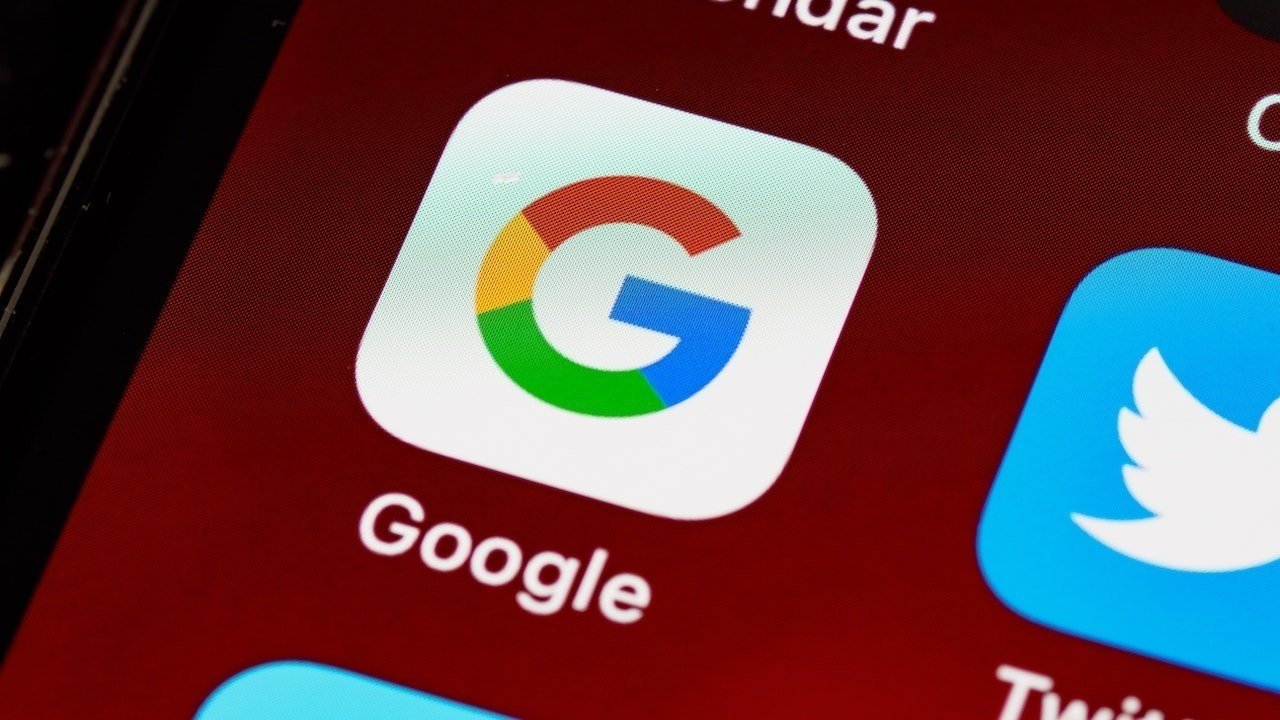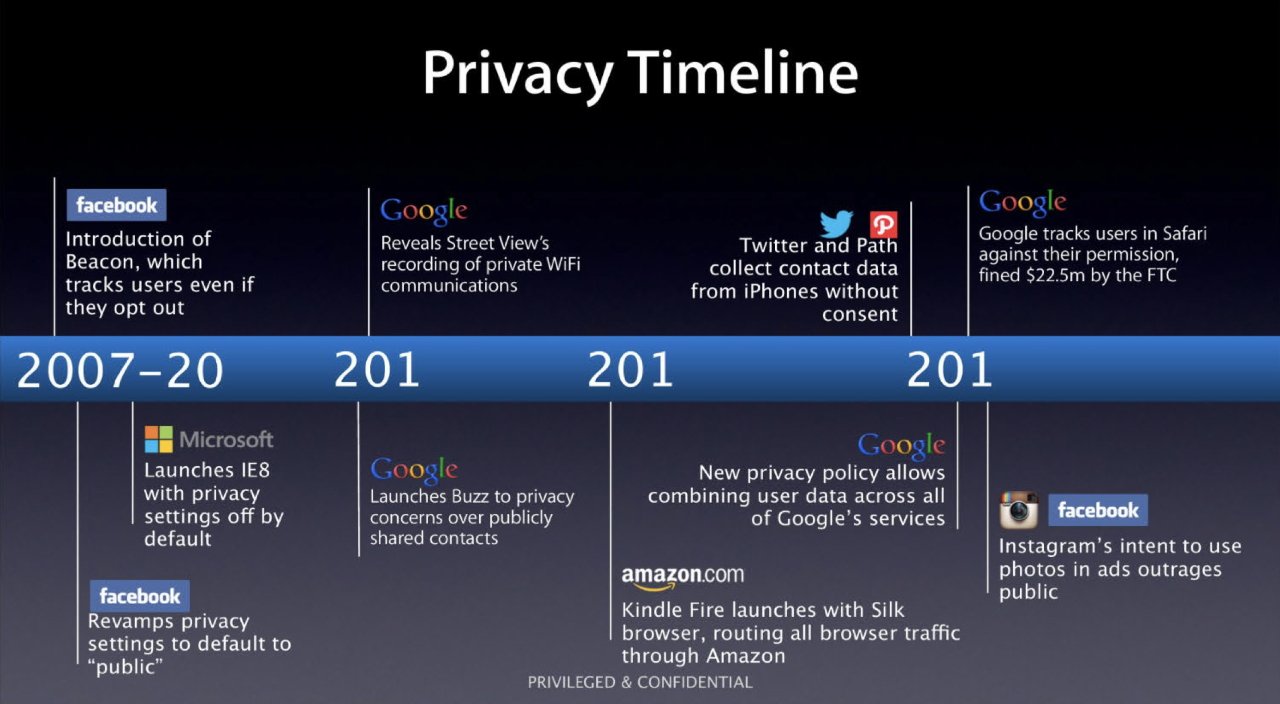Slides from an internal Apple presentation have been shown in Google's antitrust trial, contrasting the two firms' very different approaches to privacy for customers.
As the Department of Justice's (DOJ) antitrust trial against Google continues, it has continually centered on the company's deal to be the default search engine on iPhones. Apple's Eddy Cue has testified that it was because "we've always thought it was the best."
Now, though, it seems that Apple was not equally enamored of Google in every way. A slide deck has been shown in court of a 2013 Apple presentation that examines how privacy is used or abused across the industry.
The slides were emailed by Eddy Cue to Tim Cook and Phil Schiller, and included one slide that was blunt about the Android operating system. "Android is a massive tracking device," it said.
That was all Apple wrote on that particular slide, but among the rest of the presentation deck it gave more detail, and also quoted Google's Eric Schmidt.
"Google's policy is to get right up to the creepy line but not cross it," Schmidt reportedly said in 2010. "I would argue that implanting things in your brain is beyond the creepy line. At least for the moment, until the technology gets better."
Much of Apple's presentation is redacted but among the other slides that can be read is a Privacy Timeline. It lists Facebook's tracking of users even if they opt out, and Google's Street View recorded private Wi-Fi communications.
Currently, Google pays Apple to remain the default search engine on iPhones. That may have to stop if the DOJ wins its case, in which case Apple — which is not accused of any wrongdoing — could lose as much as $20 billion per year.
 William Gallagher
William Gallagher








-m.jpg)







 Wesley Hilliard
Wesley Hilliard

 Christine McKee
Christine McKee
 Malcolm Owen
Malcolm Owen

 Andrew Orr
Andrew Orr





-m.jpg)




14 Comments
Well, because Android is a massive tracking device.
From the slide...
Google New privacy allows combining user data across all of Google's services
Ah, this explains why YouTube two-factor authentication dropped the texting a code option (visible but grayed out) and only allows 2FA via YouTube on another device. They're linking all of our devices.
Isn't this similar to ONE of the creepy things that Uber did and got into trouble for?
Same presentation calls out Facebook, Microsoft, Twitter, Pinterest and Amazon, but the real question is why these aren't updated and public slides??
It's abundantly clear once you understand that Google is an advertising company, not a technology company.
Their bottom line relies on knowing as much about people as possible so that they're the best choice for companies which want to advertise their products online. Their core technologies: online services (search, mail, maps, messaging, YouTube, cloud storage), Android, and Chrome are simply vehicles for that. So of course they're going to continually look for ways to maximize the quantity and quality of that data. The same way Apple continually looks for ways to make their technology products more attractive to their customers.